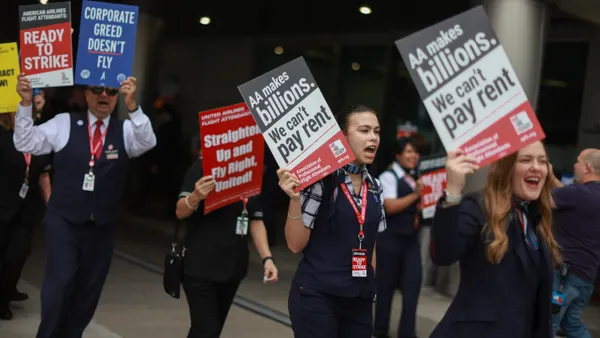Dive Brief:
- Pandemic-induced remote work may have taken a toll on office culture, June 2 survey results from Clutch revealed. Nearly two-thirds of the 301 workers surveyed reported spending less time socializing with colleagues since the U.S. outbreak of COVID-19.
- Some organizations have attempted to remedy this. While 35% of respondents said their employers haven't hosted any virtual events, others reported virtual professional development sessions (19%), happy hours (13%), activities or games (9%) and meals (5%). Slightly more than a quarter of respondents said employers have upped employee access to communication technology during the pandemic.
- Despite the drop in employee-to-employee communication, managers' availability has remained largely intact. More than half said their managers are neither more nor less available, while 29% said their managers have more available.
Dive Insight:
Remote work was once a benefit employers used to boost engagement. Given the ubiquitous nature of remote work due to the pandemic, employers must now find a way to prioritize culture despite the challenges remote work poses.
As Clutch found, employees have been socializing less since the onset of the pandemic. A recent Smartsheet survey yielded similar results: 80% of respondents said they feel less connected working remotely.
As employers work to combat this problem, some may turn to solutions reported by those Clutch surveyed and set up opportunities for virtual socialization. Such events may be bolstered by a remote work policy, which can set expectations for participation, prioritize inclusion and standardize tech tools, sources previously told HR Dive.














